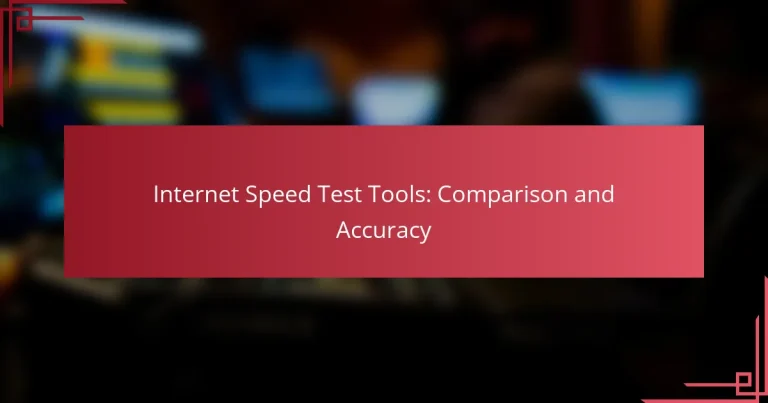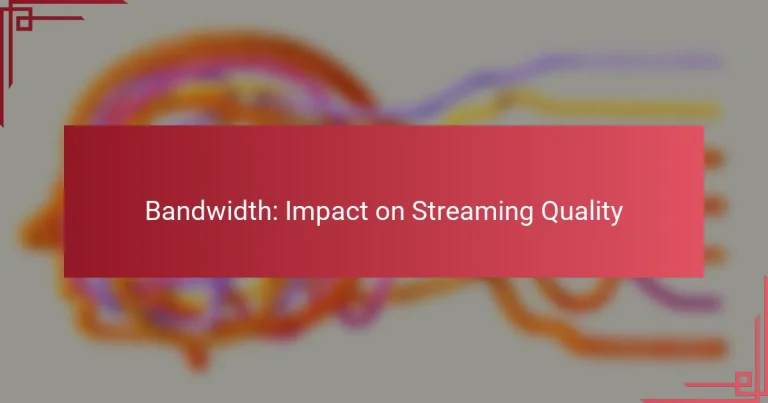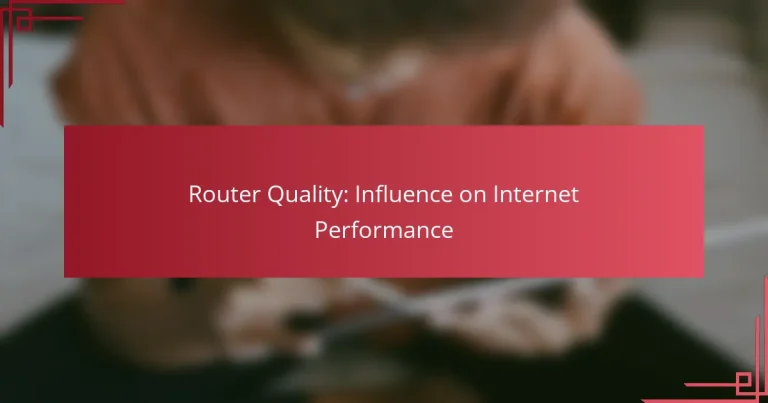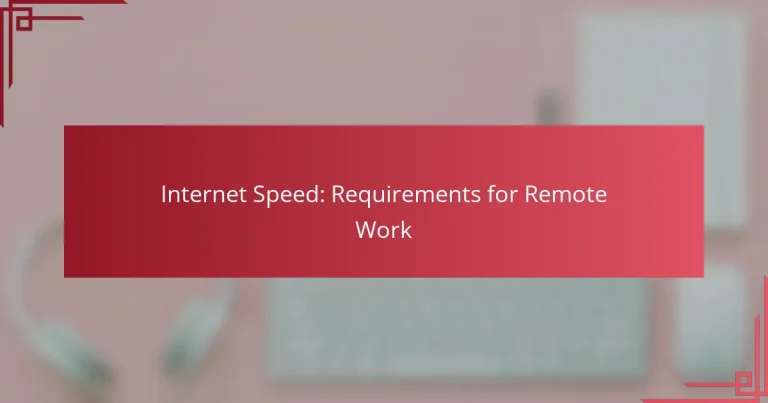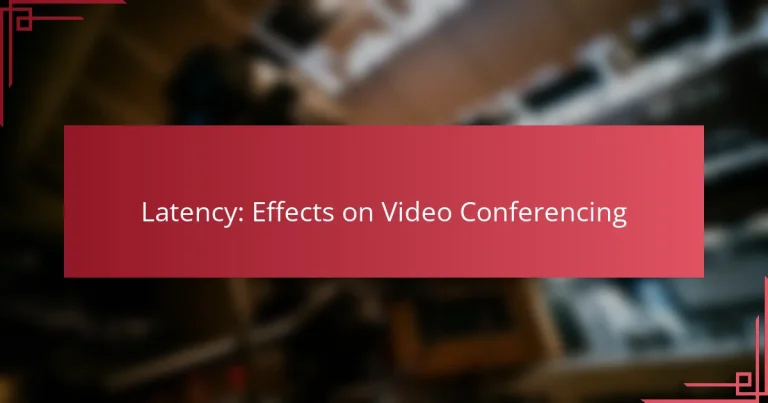Speed Throttling Policies: Major ISPs and Their Practices
Major ISPs in the US, such as Comcast, AT&T, Verizon, and T-Mobile, employ speed throttling practices to effectively manage network traffic and ensure service quality. These policies can lead to reduced internet speeds for consumers, particularly during peak times or after reaching data limits, ultimately impacting activities like streaming and online gaming.
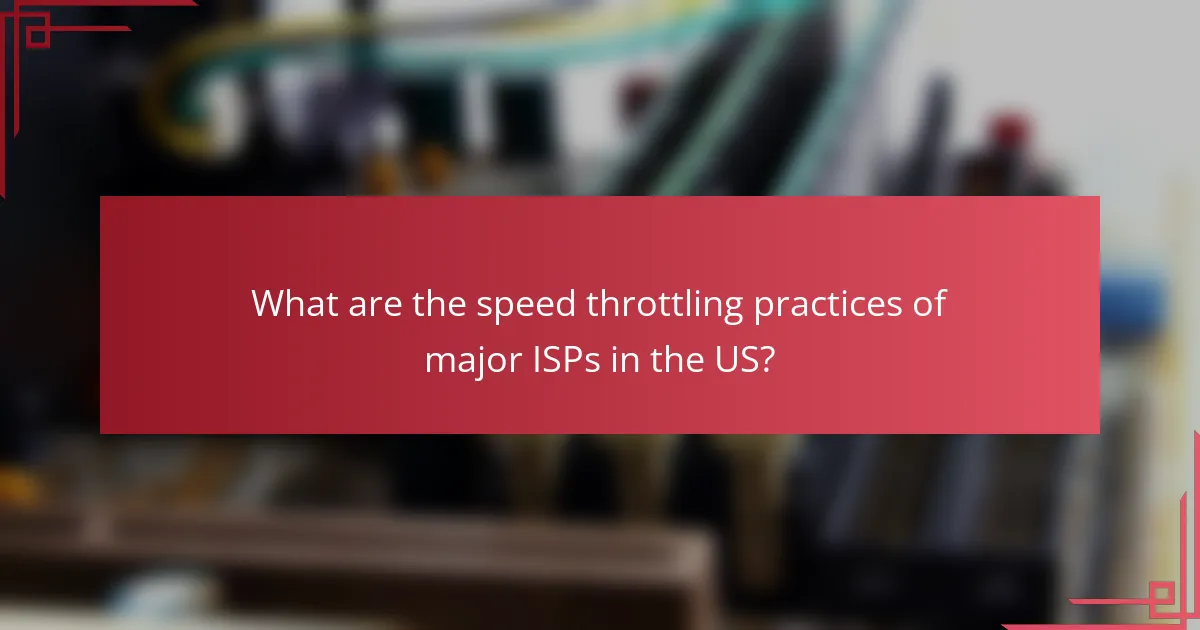
What are the speed throttling practices of major ISPs in the US?
Major ISPs in the US, including Comcast, AT&T, Verizon, and T-Mobile, implement speed throttling practices to manage network traffic and maintain service quality. These practices can affect users’ internet speeds based on data usage, network congestion, and specific service plans.
Comcast speed throttling policies
Comcast employs speed throttling primarily during peak usage times to ensure fair access for all users. Customers on lower-tier plans may experience reduced speeds after reaching a certain data threshold, typically around 1 TB per month.
Users should monitor their data usage through the Xfinity app to avoid throttling. If frequent throttling occurs, upgrading to a higher-tier plan may provide more consistent speeds.
AT&T speed management techniques
AT&T uses a technique called “network management” to throttle speeds for users who exceed their data limits, particularly on mobile plans. This can lead to reduced speeds during high-traffic periods, impacting streaming and gaming experiences.
Customers should consider AT&T’s unlimited plans if they regularly exceed data limits. Understanding the specifics of your plan can help avoid unexpected slowdowns.
Verizon data prioritization methods
Verizon prioritizes data for users on higher-tier plans, which means those with unlimited plans may experience throttling during congestion. This practice is designed to maintain service quality for premium customers while managing overall network performance.
Verizon customers can check their plan details to understand potential throttling scenarios. Upgrading to a premium plan may mitigate speed issues during peak times.
T-Mobile network optimization strategies
T-Mobile implements network optimization strategies that include deprioritizing data for users who exceed their high-speed data allowance. This deprioritization can lead to slower speeds during peak hours, especially for heavy data users.
To avoid throttling, T-Mobile users should keep track of their data usage and consider switching to an unlimited plan if they frequently experience slowdowns. Regularly reviewing plan options can help ensure optimal performance.
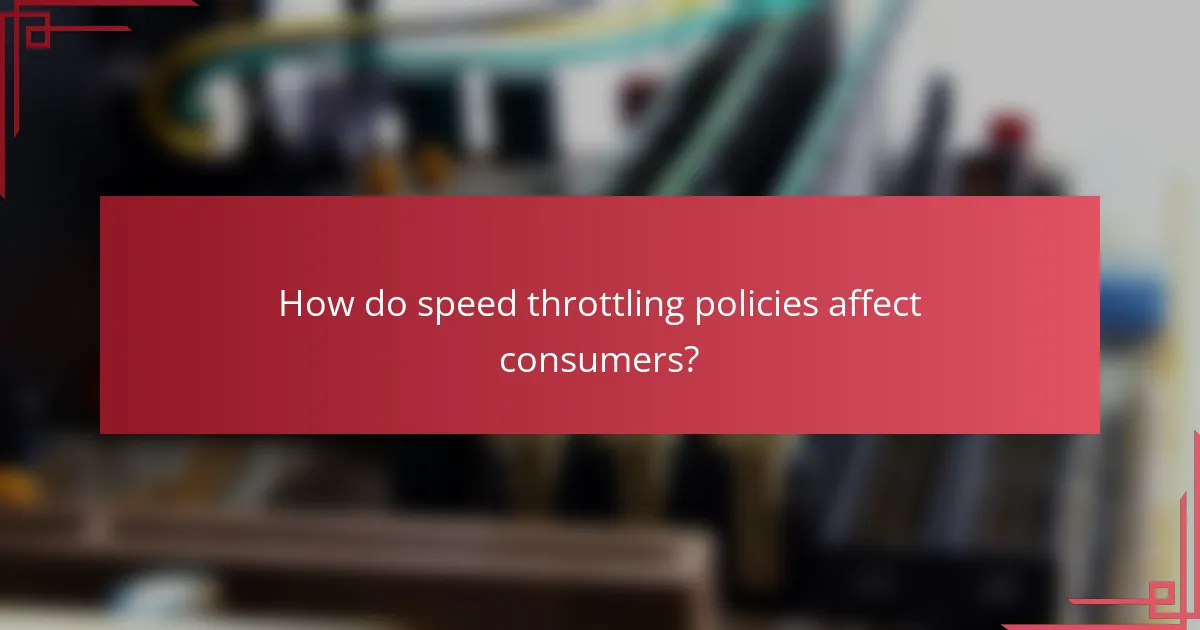
How do speed throttling policies affect consumers?
Speed throttling policies can significantly impact consumers by reducing internet speeds during peak usage times or after reaching data limits. This can lead to slower browsing, buffering during video streaming, and lag in online gaming, ultimately affecting the overall user experience.
Impact on streaming services
Speed throttling can severely affect streaming services by causing interruptions and buffering. When ISPs limit bandwidth, users may experience lower video quality or longer loading times, especially during peak hours. For instance, a user streaming in HD may find their video downgraded to standard definition if their data cap is reached.
Consumers should consider their ISP’s policies when choosing a plan, especially if they frequently use services like Netflix or Hulu. Checking for unlimited data options or plans that prioritize streaming can help avoid throttling issues.
Effects on online gaming
Throttling can lead to increased latency and lag in online gaming, which can be detrimental to performance. Gamers may experience delays in response times, making competitive play frustrating. For example, a game that typically runs with a latency of 20 ms might see delays of 50 ms or more under throttled conditions.
To mitigate these effects, gamers should look for ISPs that offer low-latency connections and avoid plans that impose data caps. Using a wired connection instead of Wi-Fi can also help maintain stable speeds during gameplay.
Influence on remote work performance
Speed throttling can hinder remote work by slowing down essential tasks such as video conferencing, file uploads, and cloud access. Employees may face interruptions during meetings or delays in accessing necessary documents, which can reduce productivity. For instance, a video call that typically runs smoothly may become choppy or disconnect if throttled.
To ensure reliable performance while working from home, consumers should evaluate their internet plans for speed consistency and consider options with higher bandwidth. Setting up a dedicated work network can also help prioritize work-related traffic and minimize disruptions.
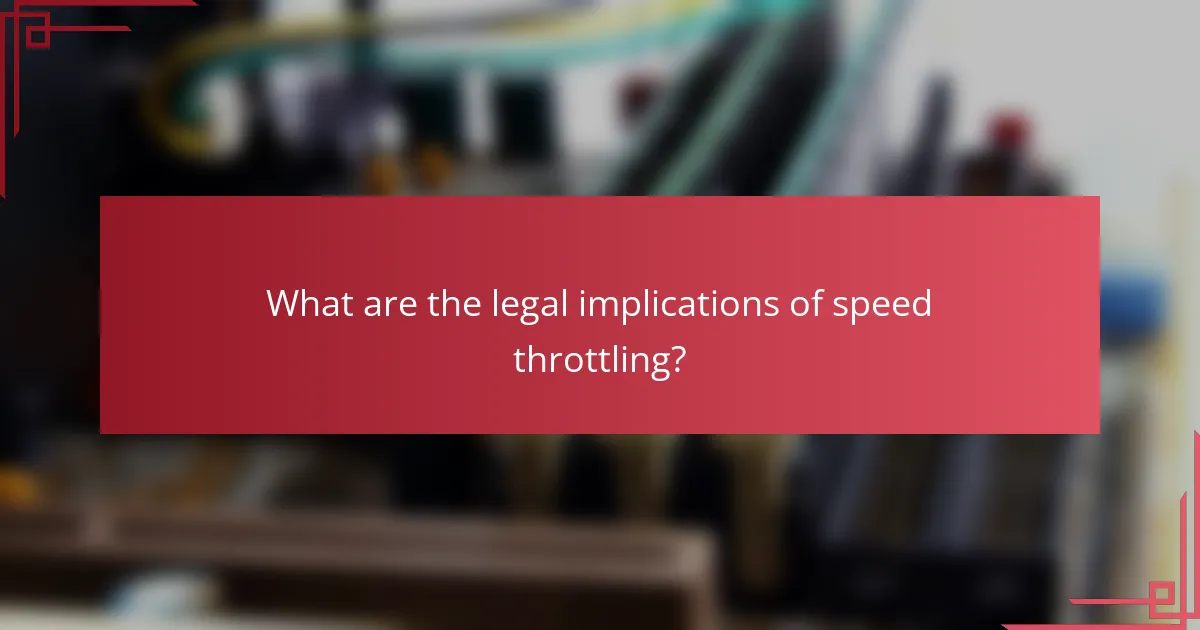
What are the legal implications of speed throttling?
Speed throttling can have significant legal implications, particularly regarding consumer rights and net neutrality. ISPs may face scrutiny and potential penalties if their throttling practices are deemed unfair or deceptive under existing regulations.
FCC regulations on net neutrality
The Federal Communications Commission (FCC) previously established net neutrality regulations that prohibited ISPs from throttling internet speeds based on content or user behavior. However, these regulations were repealed in 2017, leading to a more permissive environment where ISPs can implement throttling practices, provided they disclose them to consumers.
Without strong net neutrality protections, ISPs may prioritize certain services or applications, potentially disadvantaging smaller competitors and affecting overall internet access. Consumers should be aware of their ISP’s policies and any disclosures regarding speed management.
State-level legislation on ISP practices
Some states have enacted their own laws to regulate ISP practices, including speed throttling. For instance, California passed a net neutrality law that reinstates some protections against throttling, requiring ISPs to treat all internet traffic equally.
State regulations can vary significantly, with some states taking a proactive stance while others may not have specific laws addressing throttling. Consumers should check their state’s legislation to understand their rights and the protections available against unfair throttling practices.
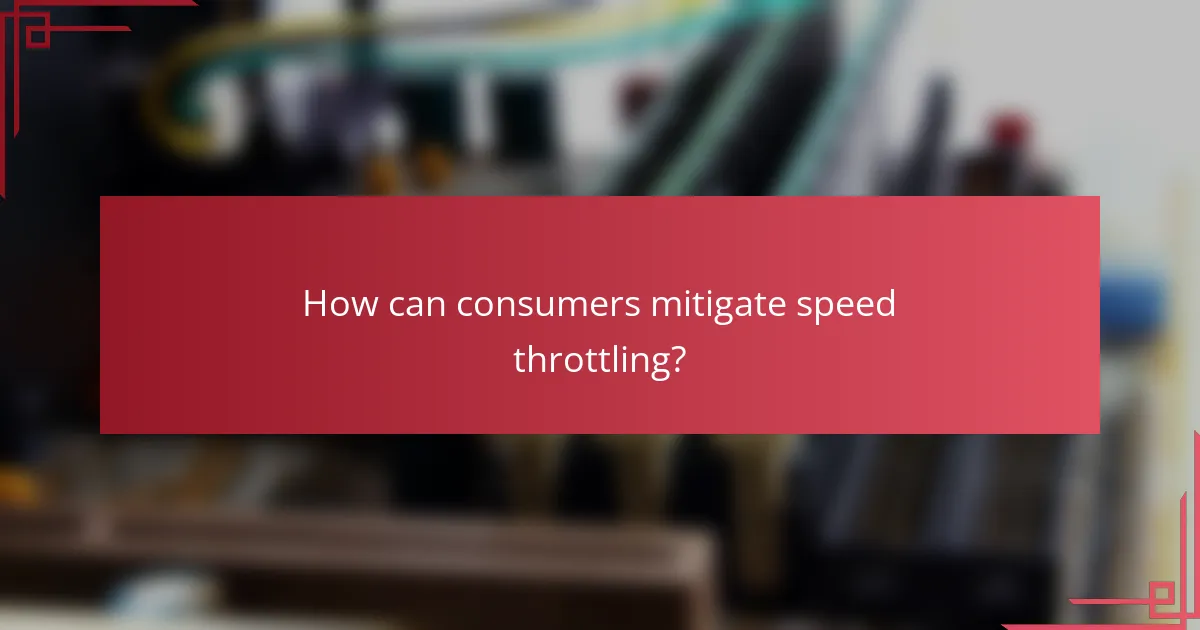
How can consumers mitigate speed throttling?
Consumers can mitigate speed throttling by employing strategies such as using VPNs, selecting ISPs without throttling policies, or upgrading to higher-tier internet plans. Each method has its own advantages and considerations that can help improve internet speeds.
Using VPNs to bypass throttling
Using a VPN can effectively bypass throttling by encrypting your internet traffic, making it difficult for ISPs to identify and limit specific types of data. This can be particularly useful for streaming or gaming, where throttling is common.
However, not all VPNs are created equal. Look for reputable providers that offer high speeds and reliable connections. Be aware that while a VPN can enhance privacy, it may also introduce slight latency, so choose one with minimal impact on performance.
Choosing ISPs with no throttling policies
Selecting an ISP that explicitly states it does not engage in speed throttling is a straightforward way to avoid this issue. Research ISPs in your area to find those with transparent policies regarding data management.
Consider reading customer reviews and checking third-party reports to verify claims. Some ISPs may offer promotional plans that guarantee no throttling, so look for these options when comparing services.
Upgrading to higher-tier plans
Upgrading to a higher-tier internet plan can often alleviate throttling issues, as these plans typically come with higher data caps and faster speeds. Many ISPs throttle speeds based on data usage, so a plan with more bandwidth can help maintain consistent performance.
Before upgrading, evaluate your internet usage patterns. If you frequently stream high-definition content or play online games, a higher-tier plan may be worth the investment. Compare the costs and benefits of different plans to ensure you choose the best option for your needs.
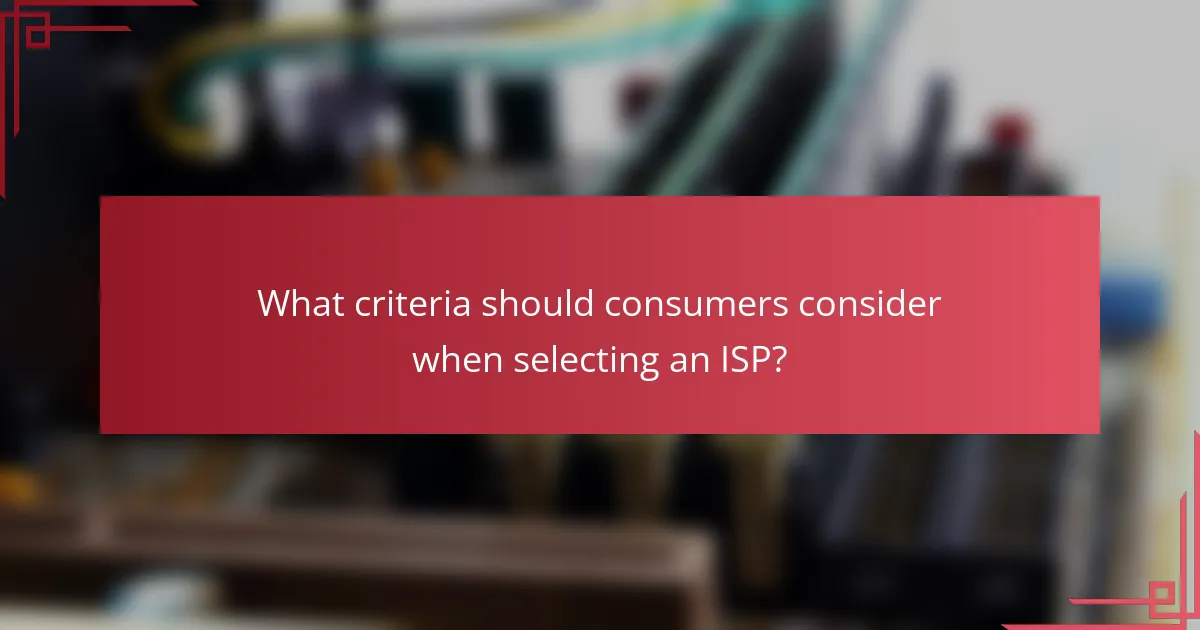
What criteria should consumers consider when selecting an ISP?
Consumers should evaluate several key criteria when choosing an Internet Service Provider (ISP), including throttling history, customer service reputation, and pricing and contract terms. These factors significantly impact the overall internet experience and can help avoid potential issues down the line.
Throttling history of the ISP
Understanding an ISP’s throttling history is crucial, as it reveals their practices regarding bandwidth management. Some providers may intentionally slow down speeds during peak usage times or for specific types of traffic, such as streaming or gaming.
Look for reviews or reports on the ISP’s past throttling incidents. If an ISP has a history of aggressive throttling, it may not be the best choice for heavy users or those who rely on consistent speeds for work or entertainment.
Customer service reputation
The reputation of an ISP’s customer service can greatly affect your experience, especially when issues arise. Research customer feedback on responsiveness, problem resolution, and overall satisfaction to gauge how well the ISP supports its users.
Consider checking independent review sites or forums for insights into common customer service issues. An ISP with a strong reputation for customer support is often worth the investment, even if their pricing is slightly higher.
Pricing and contract terms
Pricing and contract terms are essential factors to consider when selecting an ISP. Compare monthly fees, installation costs, and any additional charges for equipment or data overages. Look for promotional rates that may increase after an initial period.
Pay attention to contract lengths and cancellation fees. Some ISPs may lock you into long-term contracts, while others offer more flexible month-to-month options. Understanding these terms can help you avoid unexpected costs and ensure you choose a plan that fits your budget.
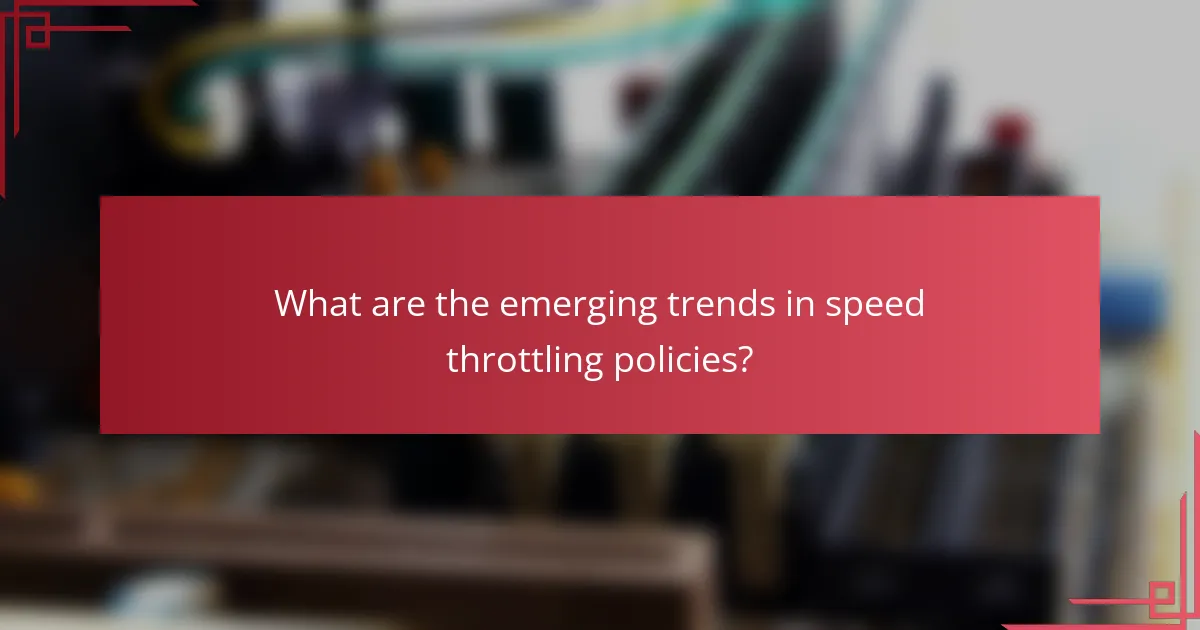
What are the emerging trends in speed throttling policies?
Emerging trends in speed throttling policies indicate a growing emphasis on transparency and consumer choice. Many Internet Service Providers (ISPs) are increasingly disclosing their throttling practices and offering options for users to manage their bandwidth usage more effectively.
Increased Transparency from ISPs
ISPs are beginning to provide clearer information about their speed throttling policies, including when and why they may slow down internet speeds. This shift is partly driven by regulatory pressures and consumer demand for more straightforward terms of service.
For example, some ISPs now include detailed explanations in their user agreements about peak usage times and specific activities that may trigger throttling, such as heavy streaming or gaming. This transparency helps consumers make informed decisions about their internet plans.
Consumer Choice and Flexible Plans
Many ISPs are introducing flexible plans that allow consumers to choose their throttling preferences. This means users can opt for higher speeds during peak times or select plans that limit throttling based on their usage habits.
For instance, a user who primarily streams videos might select a plan that prioritizes streaming speeds, while a casual user may choose a more budget-friendly option with standard throttling practices. This flexibility empowers consumers to tailor their internet experience to their specific needs.
Regulatory Changes and Compliance
Regulatory bodies in various countries are increasingly scrutinizing speed throttling practices to ensure fair access to the internet. In the European Union, for example, regulations require ISPs to be transparent about their throttling policies and to avoid practices that could harm consumer choice.
As a result, ISPs are adapting their policies to comply with these regulations, which may lead to more standardized practices across the industry. Consumers should stay informed about their rights and the obligations of their ISPs under local laws.



